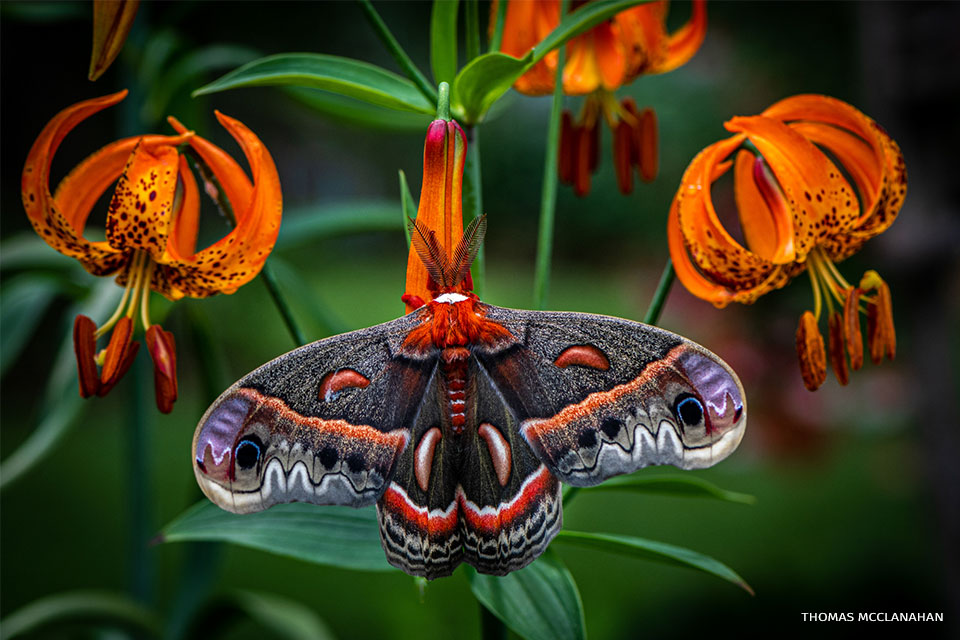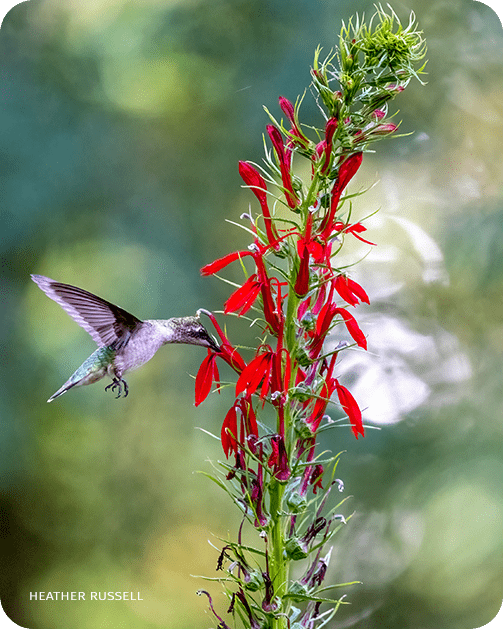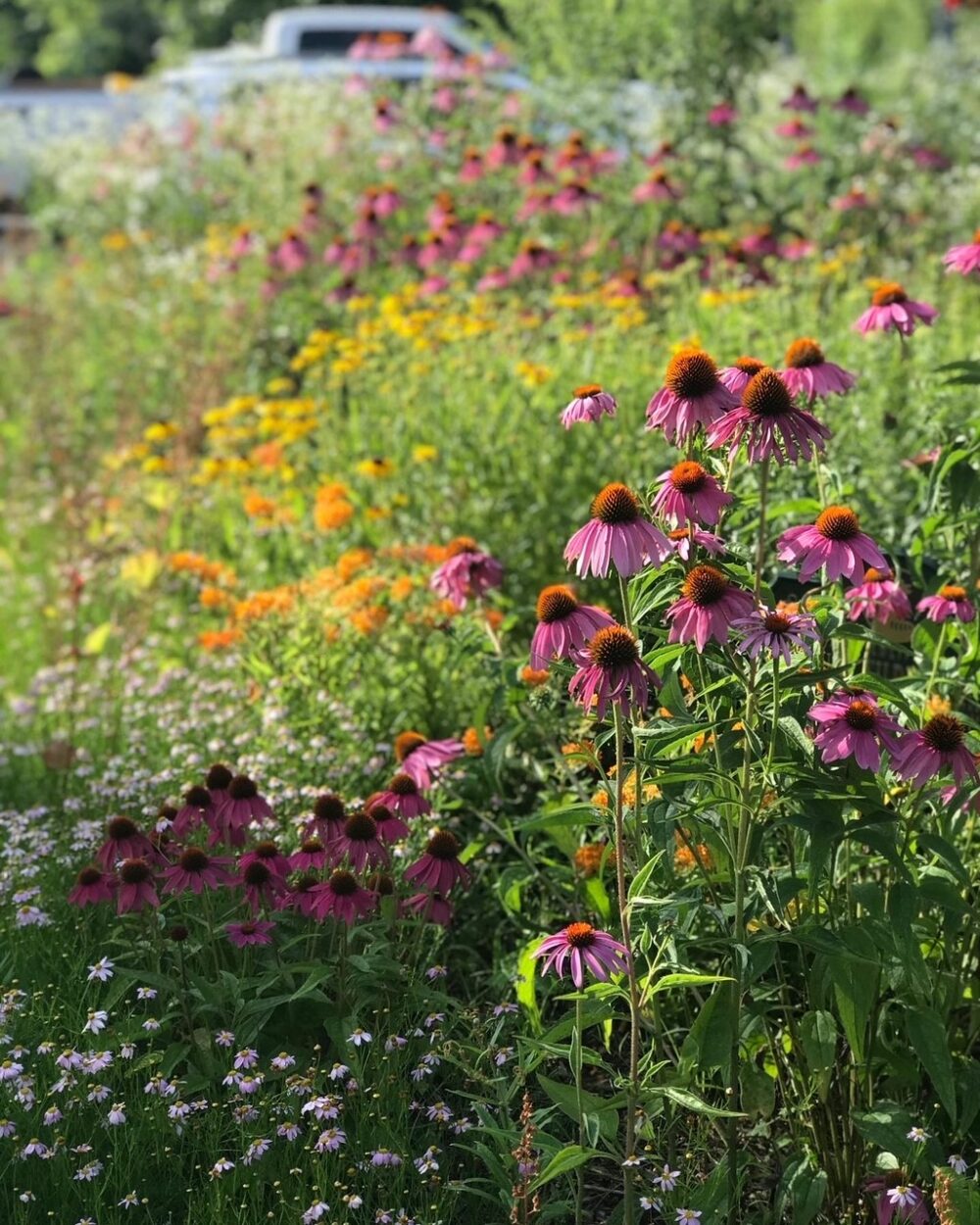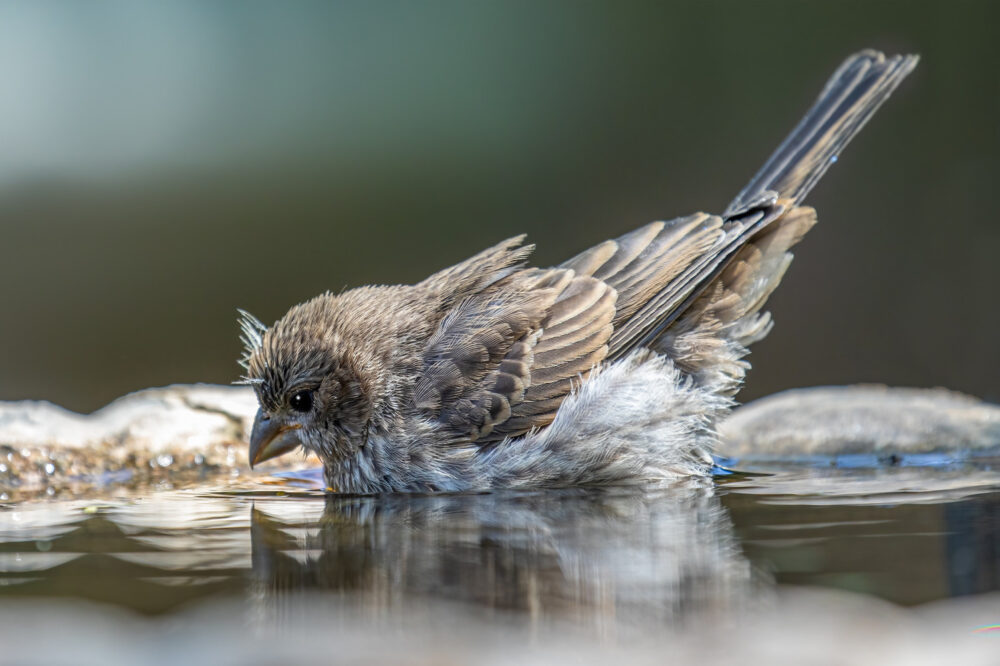We have much more to do and your continued support is needed now more than ever.
Build the Buzz beyond the Big Apple with #PolliNATION
Help plant a Million Pollinator Gardens across NYC and North America.
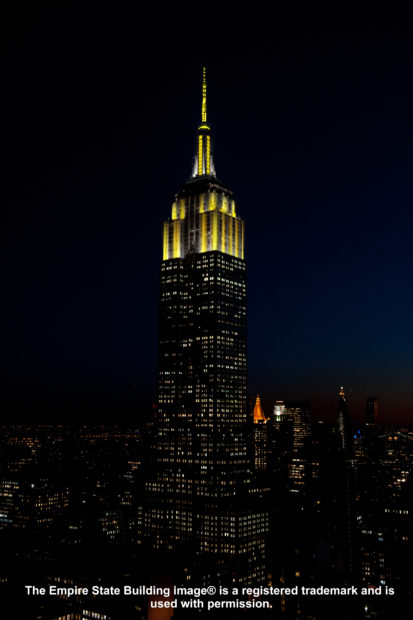
On June, 22, 2017, we highlighted the need to help bees and other pollinators when National Wildlife Federation leadership joined Shark Tank host Daymond John at the Empire State Building to light the iconic tower in yellow and black stripes for National Pollinator Week and National Wildlife Federation’s Growing a Wild NYC pollinator program.
Many thanks to S’ip by S’Well for donating their bee designed water bottles to evening lighting participants.
National Pollinator Week was founded 10 years ago by the Pollinator Partnership as an annual recognition of the important role that pollinators play in our ecosystems. In addition to the Empire State Building lighting, and to advance awareness across North America, Pollinator Partnership of Canada coordinated with the CN Tower in Toronto, Ontario to be lit in similar colors on June, 22, 2017, and for a Niagara Falls pollinator color display to close out the pollinator week festivities on Monday June 26.
Pollinators are animals that visit flowering plants to feed on nectar, and in the process move pollen from one blossom to another pollinating the plant. This act of pollination fertilizes plants, allowing them to form seeds and reproduce, as well as to produce the berries, fruits and nuts that feed both wildlife and people. 1 out of 3 of the foods we eat, such as honey, apples, bananas, chocolate, and almonds often contain essential nutrients and antioxidants good for our health and depend on pollinators. Pollinators, like bees, butterflies, wasps, beetles, and hummingbirds are critically important for healthy ecosystems.
Yet, pollinator populations have declined across the country, threatening these food supplies. Many reasons contribute to their recent decline, however we are seeing improvements in their populations in areas where people are planting nectar and pollen sources provided by flowering plants and trees.
The National Wildlife Federation’s Growing a Wild NYC program and The National Pollinator Garden Network are counting on friends of wildlife to take action – a million pollinator gardens by 2018! Join the NWF in supporting the Million Pollinator Garden Challenge by planting pollinator-friendly native plants, avoiding the use of pesticides in your yard and spreading the word to friends and neighbors.
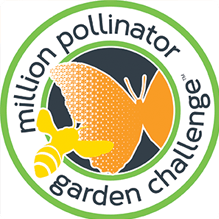
NWF co-launched the National Pollinator Garden Network and launched the Million Pollinator Garden Challenge, a nonpartisan effort to inspire people and organizations to create more pollinator habitats. We are halfway there, approximately 500,000 participants of 50 national partners’ organizations have planted or enhanced pollinator gardens.
Since 2016, NWF has contributed the following efforts to support the Million Pollinator Garden Challenge campaign: Through the Garden for Wildlife program approximately 19,000 new habitats supporting pollinators (includes 822 schools) and 130,000 Butterfly Hero pledges to plant for monarchs and pollinators. Over 300 municipal leaders have taken the Mayor’s Monarch Pledge committing on actions to benefit monarchs and pollinators ranging from installing a new demonstration garden at city hall to removing milkweed from a city’s list of noxious plants.
How You Can Help
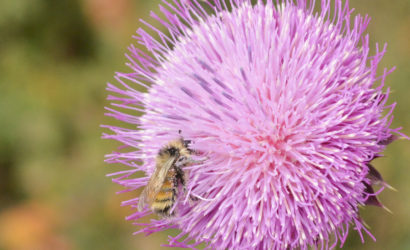
1. Plant native plants for pollinators. You can find the right plants for your area by asking a local nursery or nature center.
2. Register your garden at millionpollinatorgardens.org. You can also add a photo of your garden to the SHARE map to inspire others.
3. Encourage others to join. Use #PolliNation on social media to share your habitat planting and help spread the word.
Certify your garden, and bring home the bees!
Another easy way to join the Million Pollinator Garden Challenge is by certifying your yard with the National Wildlife Federation. NWF Certified Wildlife Habitats are counted towards the million gardens goal and are guaranteed wildlife-friendly habitats. These habitats go above and beyond to provide food, water, cover, and places to raise young for a variety of wildlife in your area. During the month of June there is an added bonus! When you Certify your pollinator garden habitat, you’ll also be entered to win one of TWO summer bee cabins to help boost the pollination in your garden! See full contest rules, promotion and contest valid 6/1/2017-6/30/2017.
If you cannot plant at home there are other ways you can still show your support. Join the NWF, the Million Pollinator Garden Challenge, and the National Pollinator Garden Network effort to mobilize communities, organizations, businesses, and individuals throughout North America. We can work towards fully engaging these organizations in the pollinator health movement by planting, educating and recruiting others. Here are some examples:
Visit a public garden and learn more about pollinators. Public gardens and zoos are planting “showcase” pollinator gardens and educate millions of their visitors on plant conservation and pollinator protection.
Plant with others. Join NWF’s Community Wildlife Habitat teams planting across communities. National Garden Clubs, Inc. estimates an additional 100,000 gardens have been planted or enhanced since the campaign has commenced. Others, like Monarch Watch contribute thousands of pollinator garden habitats to be counted in the challenge annually. Voluntary membership groups, such as the Daughters of the American Revolution, and Scout groups are planting hundreds of gardens annually across private and public spaces.
Educate and share with others online. At Garden,org, The National Gardening Association website reported that in the last 3 years over 58,000 photos of pollinator-friendly plants have been uploaded to their member-driven database of plants. Check out NWF’s Facebook page and Twitter and promote pollinator gardening using the hashtags #Garden4wildlife and #PolliNATION for the Million Pollinator Garden Challenge. Or if your out and bout, share plants that you have spotted with your mobile device by downloading the mobile app GrowIt!
Enjoy the plants and festivals at local garden centers. Thousands of garden centers are supplying pollinator-beneficial plants to consumers along with regional advice on plant selection and care. Garden centers have self-reported increases in sales and customer requests for pollinator friendly plants nationwide over the last 2 years. In St. Louis, Missouri Greenscapes Garden Center reported a 30% increase annually in pollinator perennial sales over the past 3 years. Garden centers have also reported increases in the highly attended pollinator workshops and festivals they host seasonally.
June is still ideal planting weather for much of the U.S. and visiting pollinator gardens, with an opportunity to draw national attention to the need for critical pollinator habitat.















